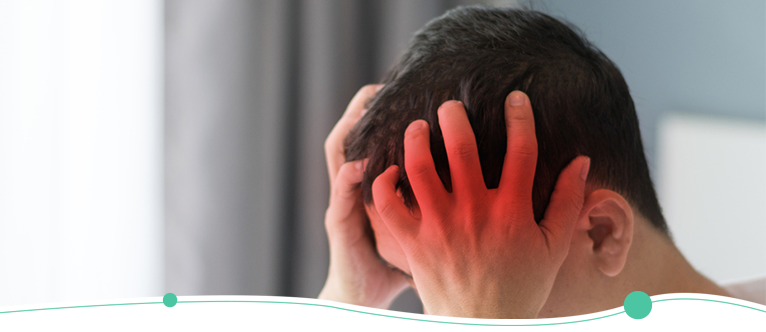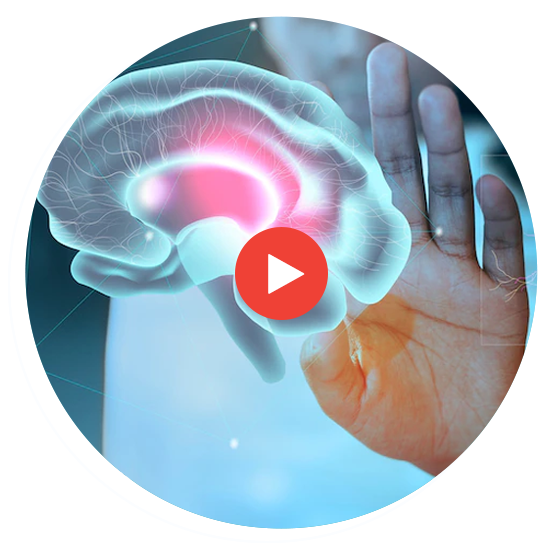
Consult an Online Doctor
For Migraine
Book an Appointment for
Only 
Migraines are throbbing headaches with the feeling of intense pressure on the brain. The pulsing sensation is commonly felt mostly on one side of the head. People who get migraines also experience nausea and sensory overload, in this case, extreme light and sound sensitivity. These headaches last for hours,andin some instances, days.
Book an Appointment for OnlyTELMDCARE
Is covered by many popular
insurance plans

TELMDCARE
What Causes Migraines?
The causes of migraine aren't fully known. But research suggestthat environmental and genetic factors may be involved. However, some research points to the following causes:
Stages and Symptoms
of Migraines
There are four stages through which migraines progress over time. These include prodrome, aura, attack and post-drome. Typically, anyone suffering from a migraine doesn't necessarily go through all these four stages.
Migraine Risk Factors
According to Dr. Rodrick Spears, a neurologist at Penn Medicine, genetics play a significant role in the development and maintenance of migraines. He noted that if a person has a first-degree relative with a history of migraines, they have a 75 percent chance of having the condition.

TELMEDCARE
What we treat
We treat a variety of acute and chronic conditions and provide expert medical advice and guidance for our patients.
Read More
What happens
during an Attack?
When migraines go untreated, they can last up to 72 hours. The migraines' frequency depends from
person to person. These attacks can either happen rarely or several times a month.
During a migraine attack, you may feel:
- Pain on both or one side of the head
- Sensitivity to light and sound
- Sensitivity to touch and smell
- Throbbing and pulsing pain
- Nausea
TELMDCARE
Migraine Triggers
Common migraine triggers include:
Treatment and Medication
There is no definitive cure for migraines. However, at TelMDCare, our doctors prescribe certain effective medications to treat migraines and to make lifestyle changes. Many drugs help in preventing migraines. Your online doctor may prescribe either of the following treatments:

Make an appointment online for a telemedicine doctor for migraines now. If your migraines get worse, get in touch with our online doctors at TelMDCare, who can help treat it with medications such as sumatriptan, Eletriptan, and Rizatriptan.
TELMDCARE
As Seen On


Get affordable treatment for
Migraine at Telmdcare
Our best online doctors for migraines on call ensure that the services we provide are adequate, high quality, and affordable. Get in touch with us today for more details, or Sign Up for a quick consultation.
TELMDCARE
Sign Up
Our best online doctors on call ensure that the services we provide are adequate, high quality,
and affordable.
Get in touch with us today for more details or Sign
Up for a quick consultation.
$43 SIGN UP
TELMDCARE
Frequently Asked Questions about Migraines
Although some people may use the terms interchangeably, headaches and migraines are different. Migraine is a type of brain disease that affects the nervous system. It is a clinical condition that can be treated with proper care. Attacks can also be disabling and can involve other symptoms. Although there is a lot of scientific evidence supporting the link between the development of a headache and the nervous system's changes during a migraine attack, it is not always possible to detect these changes on blood tests or scans. Hence, diagnosing a migraine attack is based on the symptoms.
A person's symptoms may vary depending on their condition. A typical migraine attack involves pain that's moderate to severe in intensity. It can be felt on one or both sides of the head and can feel like it's either throbbing or burning. Nausea, sensitivity to light, sound, or smells, and vomiting are some of the other common symptoms of migraines. Attacks can interfere with one's work, school, or other activities and can last up to four hours. A typical migraine attack has four phases: the prodrome, the postdrome, the headache, and the aura. About 75% of people with this condition experience prodrome symptoms, considered early warning signs of an attack. By recognizing these early, a person can take immediate medication to reduce or prevent further symptoms.
Besides head pain, other symptoms, such as nausea and vomiting, are also common in people with migraines. These include anxiety, depression, and insomnia. Although many people with migraines feel a heightened sensitivity to certain sounds, smells, and light, around 40% to 70% of them also experience allodynia, a type of pain usually caused by something that doesn't hurt. This side effect of migraines is often overlooked because it involves the improper processing of pain by the brain.
A person with migraines may experience aura during an attack, though only around 25% to 30% of them do so. Some people may start experiencing aura without the headache phase. A person with migraines may experience aura during an attack, though only around 25% to 30% of them do so. This type of sensory disturbance is usually triggered shortly before the onset of the headache phase. It can appear in the form of zigzags, blind spots, and sparks in the visual field. An aura can also be sensory, such as the sensation of numbness or tingling in the hands or feet. Although it can be motor-related, it can sometimes cause weakness in certain body parts. It usually lasts for around 5 to 60 minutes.
Migraine can be categorized as chronic or episodic. The number of days with headaches per month can be used to determine the type of condition. People with chronic migraines have at least 15 or more headache days per month, with at least eight of these being related to the symptoms of the disease. If your aura or headaches are getting progressively worse, it's important that you consult a physician. Sometimes, people with severe migraines may also require hospitalization. If they have the worst attack, they should immediately seek medical attention.
One of the most important factors people can consider when managing their migraines is their lifestyle. Aside from regular exercise, a healthy diet and a well-rounded lifestyle can also help decrease the severity of their headaches. Other lifestyle habits that can help prevent migraines include avoiding caffeine and alcohol consumption, getting enough sleep, and managing stress through yoga and meditation. Although it's not always possible to control the symptoms of migraines, you can still recognize them and seek help from your virtual doctor for migraines. Having a personalized treatment plan can help prevent them from interfering with your daily life.



